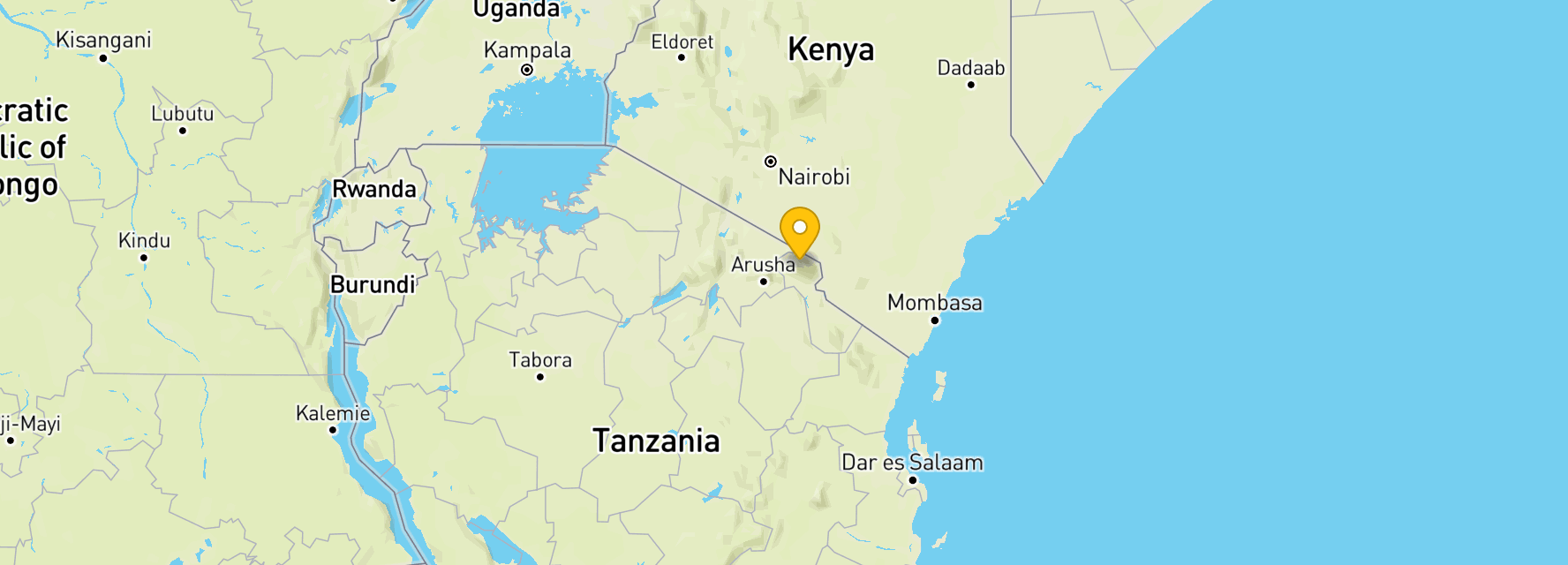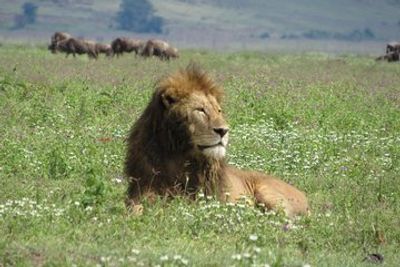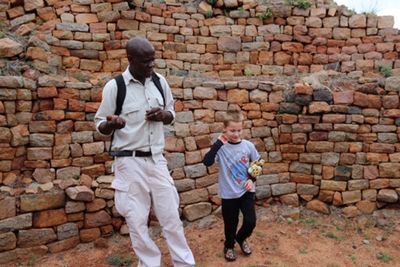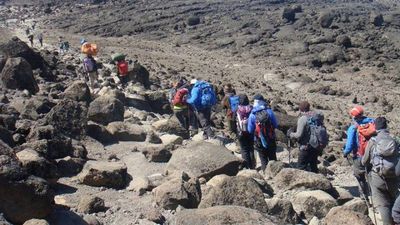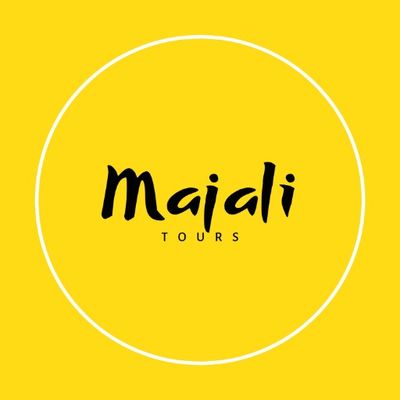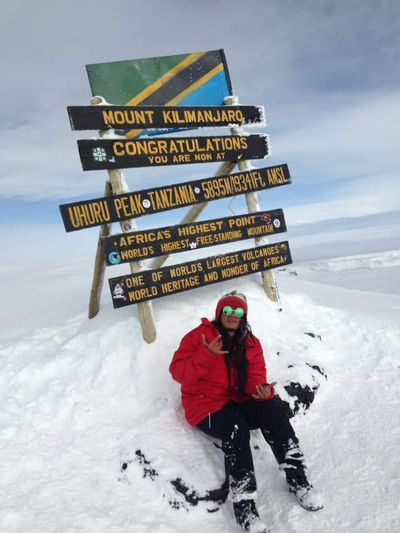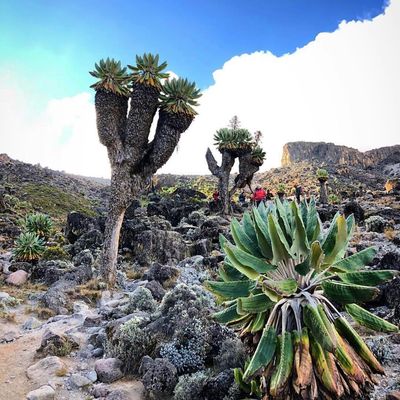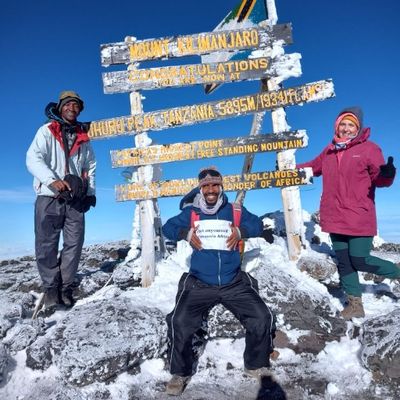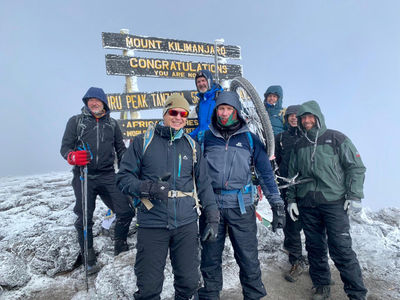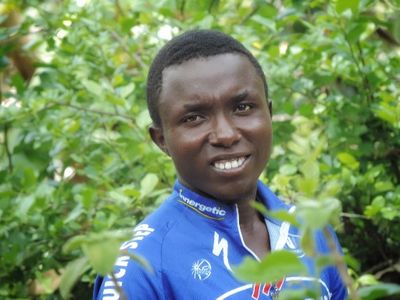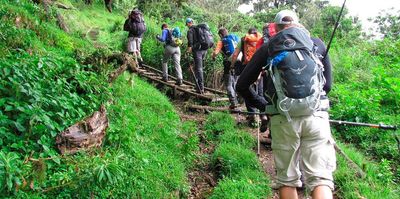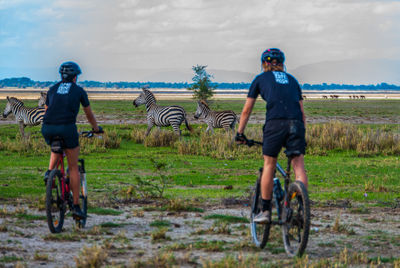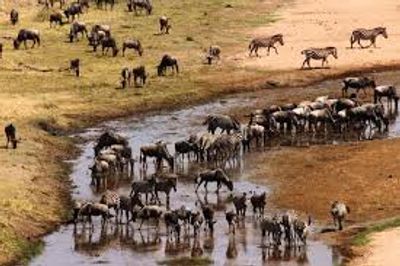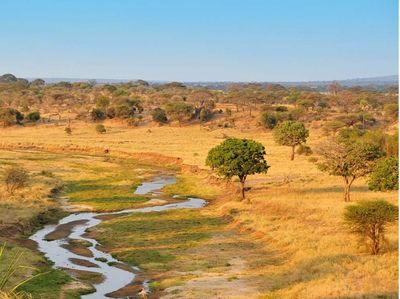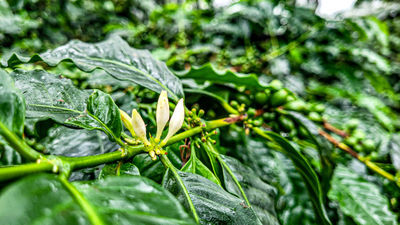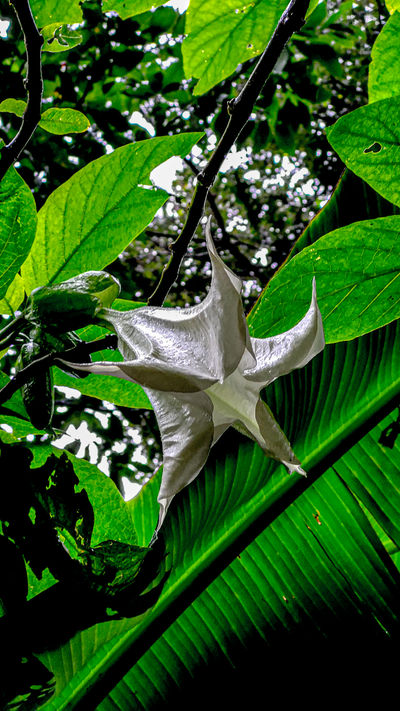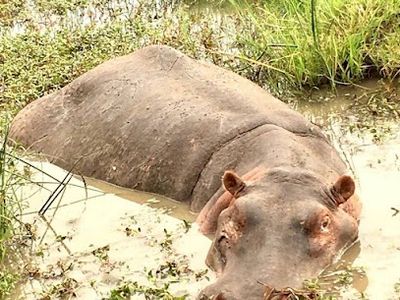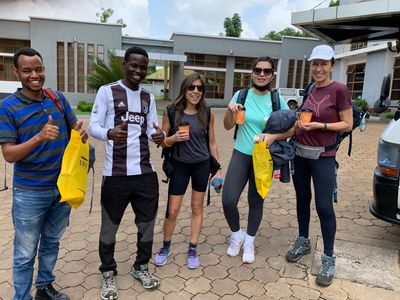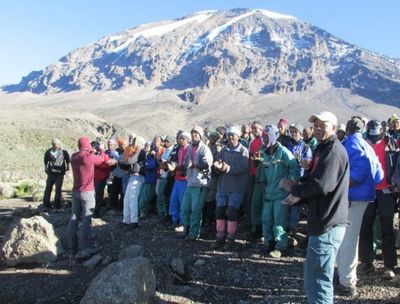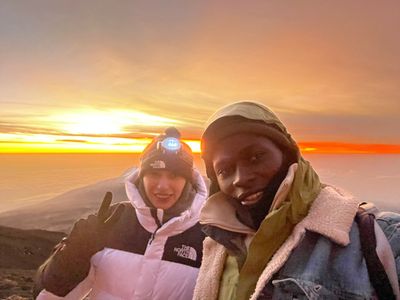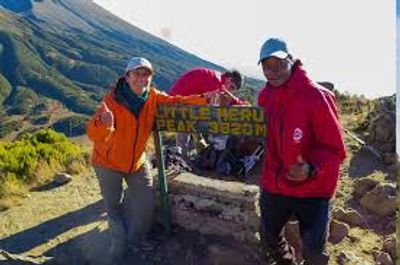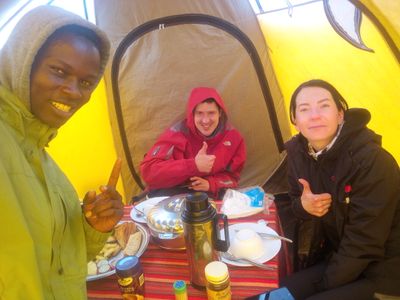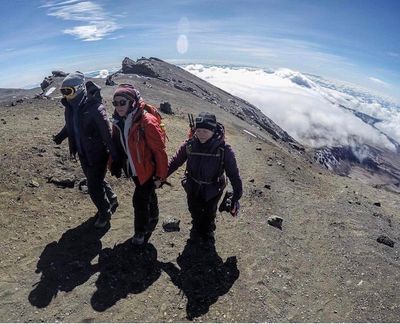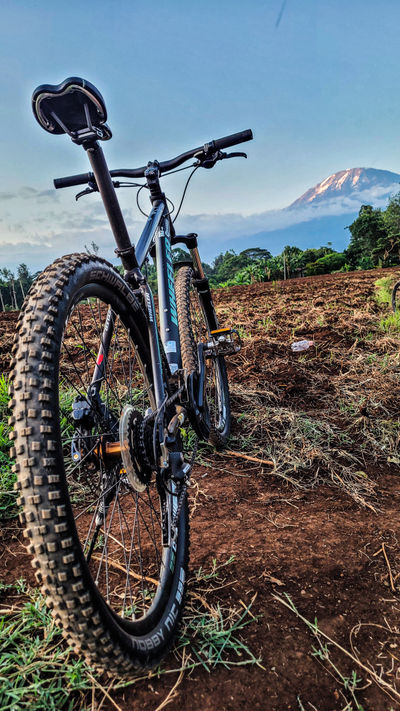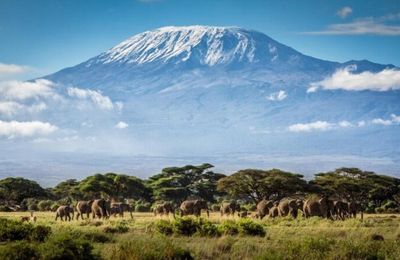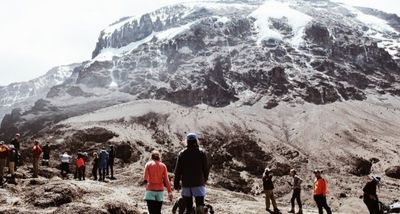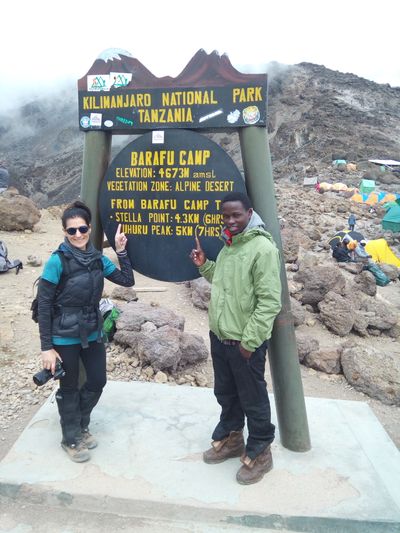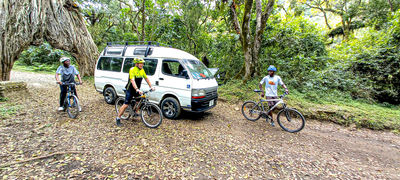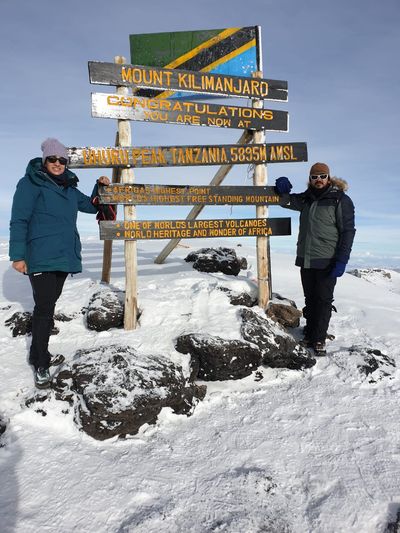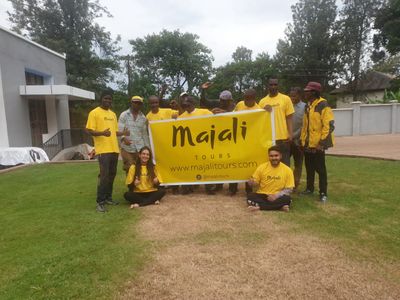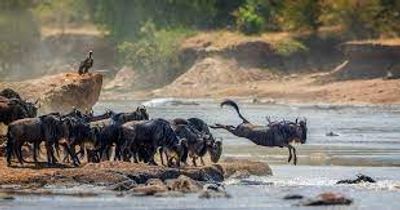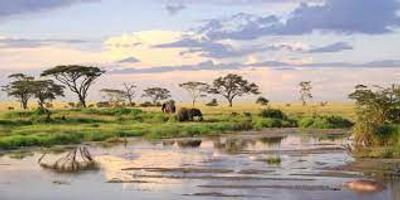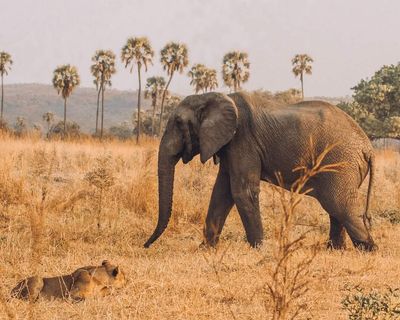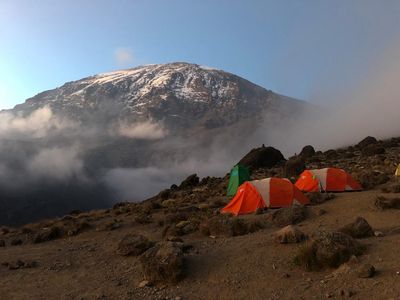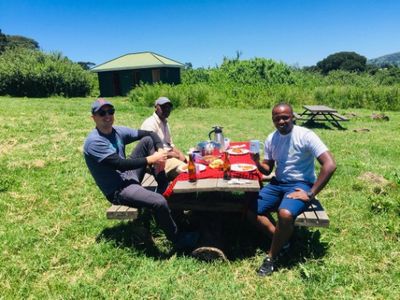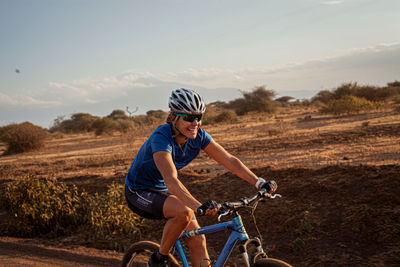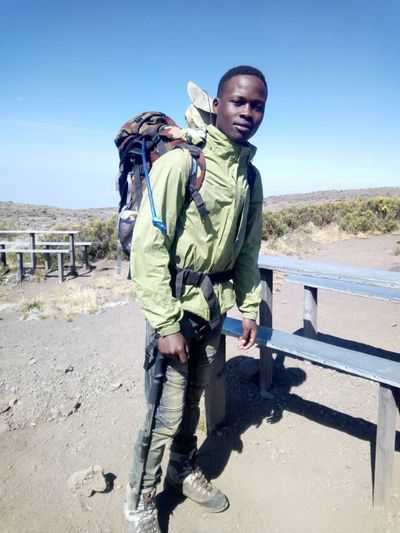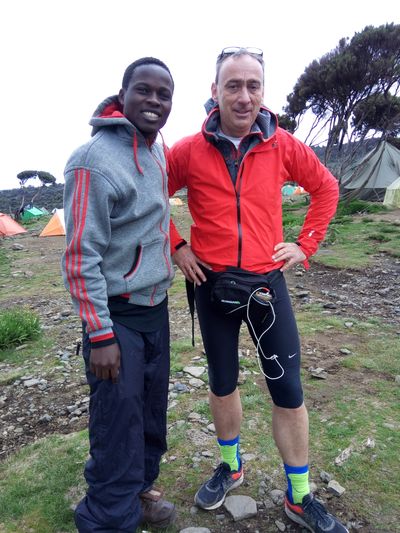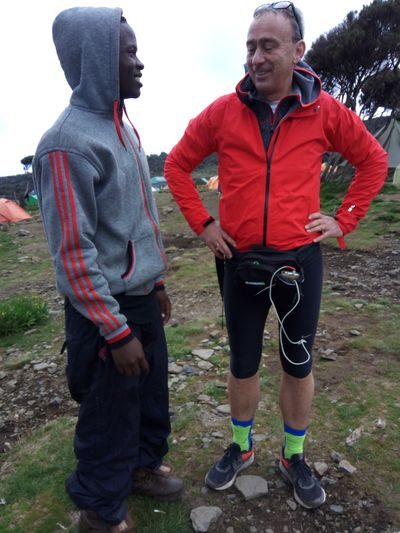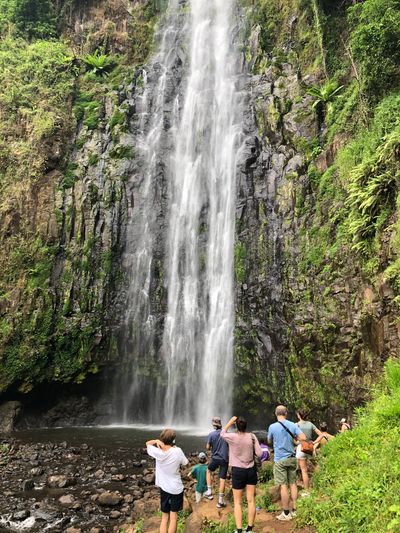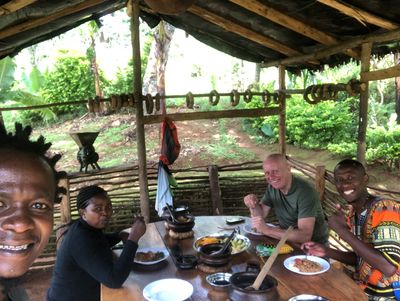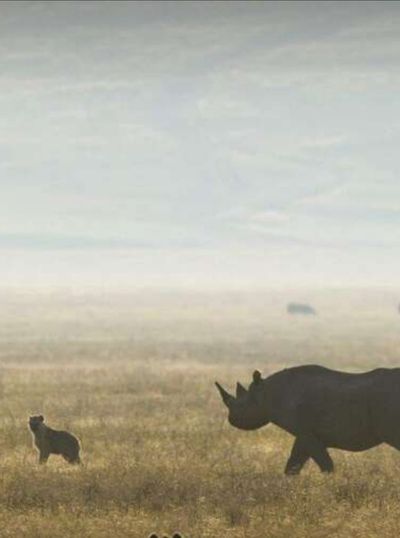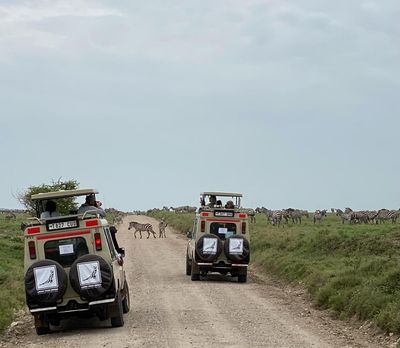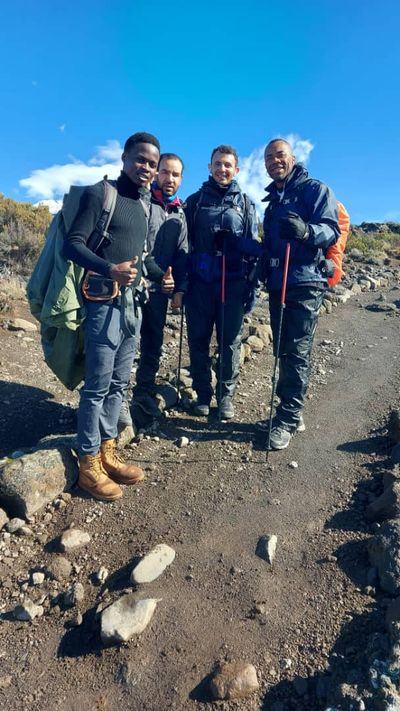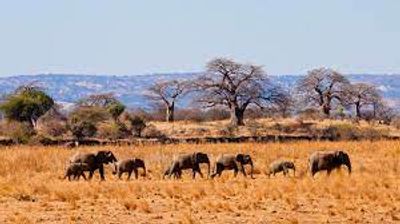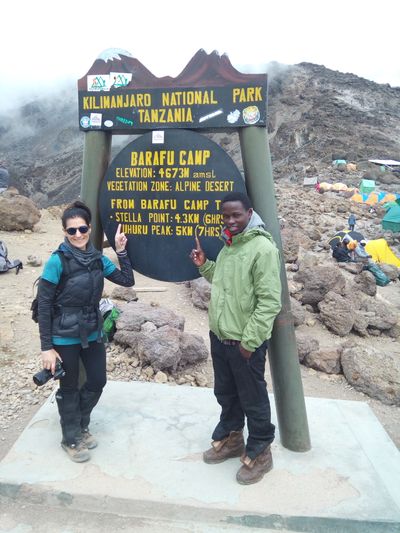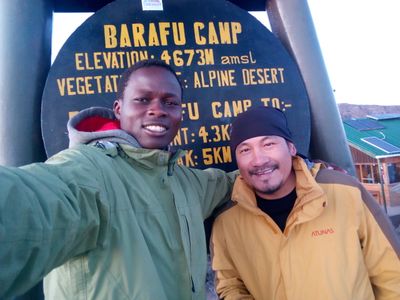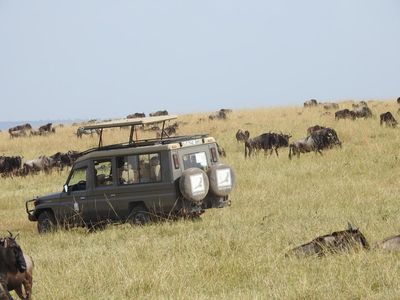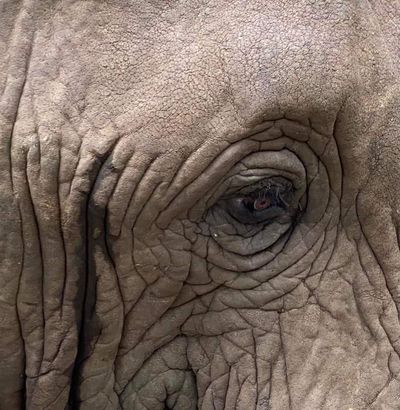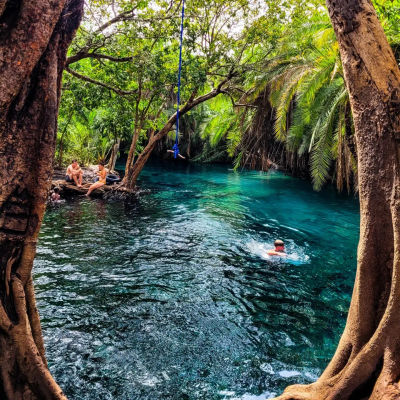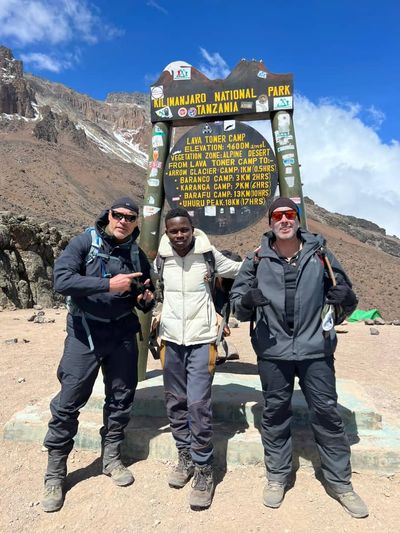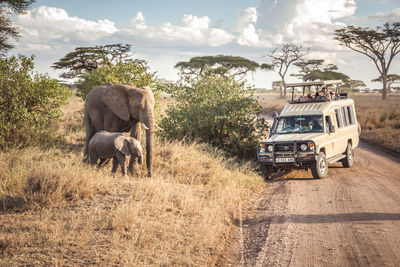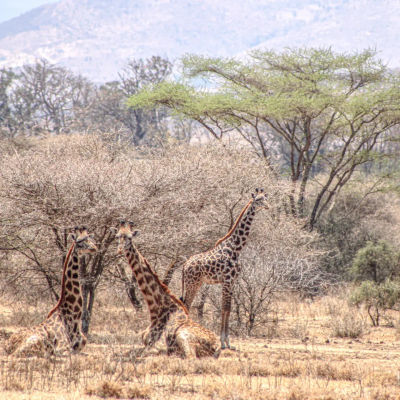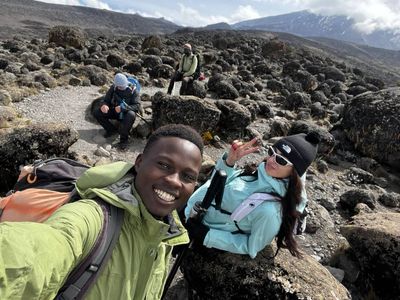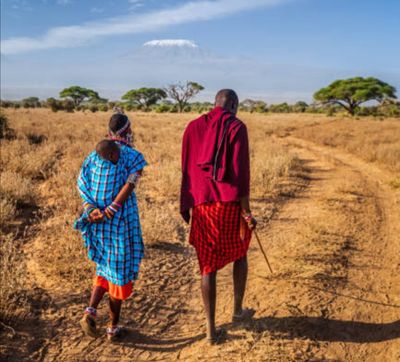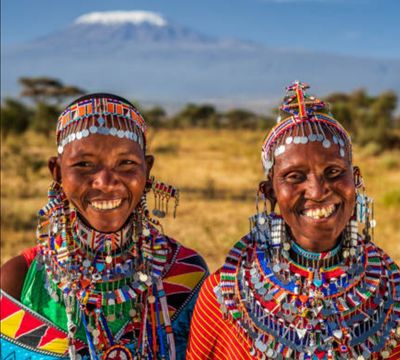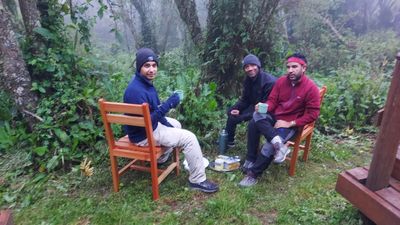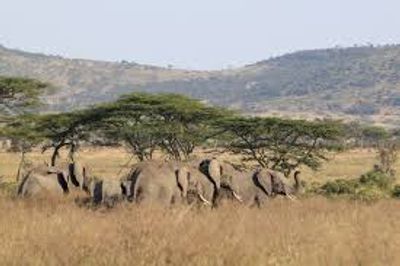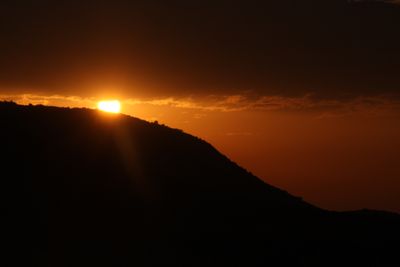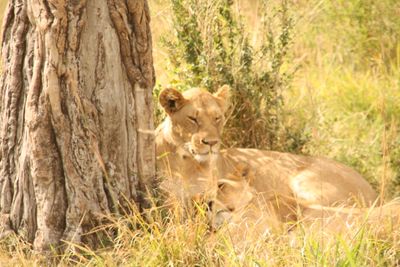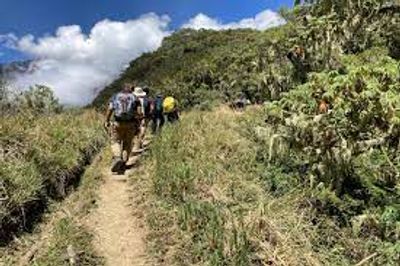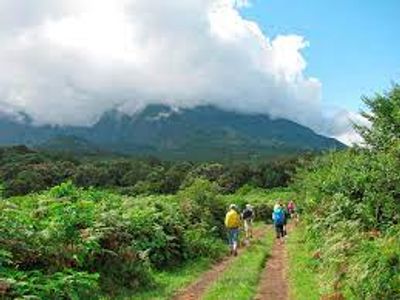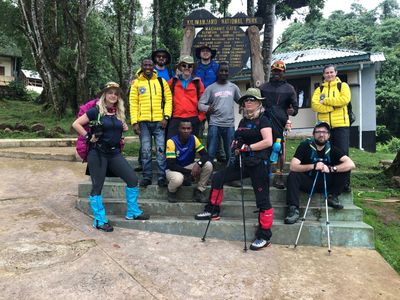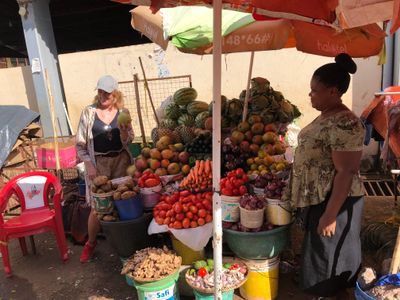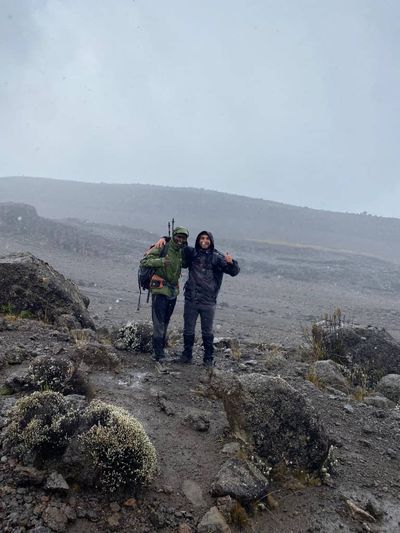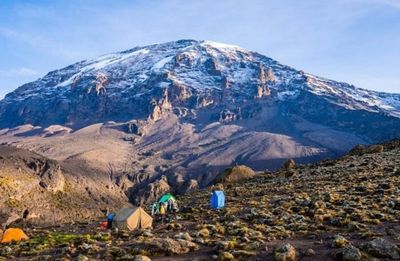



Mount Kilimanjaro Climbing 8 days Lemosho Route
$2,725.00
Mount Kilimanjaro Climbing 8 days Lemosho Route




$2,725.00
per person
What we'll do
Day 1
Drive to Kilimanjaro National Park Londorossi Gate, Hike to Mti Mkubwa Camp After breakfast and briefing, drive to Londorossi Park Gate (about a 3-hour drive). From here a forest track requiring a 4WD vehicle leads to Lemosho Glades. Walk along forest trails to Mti Mkubwa (big tree) campsite.
Elevation: 2400m/7838ft to 2700m/9137ft Distance: 5km Hiking Time: 2-3 hours Habitat: Montane Forest
Day 2
Hike Mti Mkubwa Camp to Shira 1 Camp After breakfast, we continue as the trail gradually steepens and enters the giant heather moorland zone. After several streams are crossed we continue over the Shira Ridge then gently downwards to Shira 1 camp located by a stream on the Shira Plateau.
Elevation: 2700m/9137ft to 3504m/11,496ft Distance: 8km Hiking Time: 4-5 hours Habitat: Moorland
Day 3
Hike Shira 1 Camp to Shira 2 Camp After breakfast, a gentle hike across the plateau leads to Shira 2 camp on moorland meadows by a stream. A variety of hikes are available on the Plateau, making this an excellent acclimatization day.
Elevation: 3504m/11,496ft to 3895m/12,779ft Distance: 7km Walking Time: 4-5 hours Habitat: Moorland
Day 4
Hike Shira 2 Camp to Barranco Camp From the Shira Plateau we continue to the east up a ridge, passing the junction towards the peak of Kibo. As we continue, our direction changes to the South East towards the Lava Tower, called the “Shark’s Tooth” (elevation 4650m/15,250ft). Shortly after the tower we come to the second junction which goes to the Arrow Glacier. We now continue down to the Barranco Camp. Although you end the day around the same elevation as when you began, this day is very important for acclimatization and will help your body prepare for summit day.
Elevation: 3895m/12,779ft to 3986m/13,077ft Distance: 10km Hiking Time: 6-7 hours Habitat: Semi-desert
Day 5
Hike Barranco Camp to Karanga Camp After breakfast, we leave Barranco and continue on a steep ridge up the Barranco Wall to the Karanga Valley and the junction which connects with the Mweka Trail.
Elevation: 3986m/13,077ft to 4050m/13,250ft Distance: 5km Hiking Time: 3-4 hours Habitat: Alpine Desert
Day 6
Hike Karanga Camp to Barafu Camp We continue up to the Barafu Camp. You havpe completed the South Circuit, which offers views of the summit from many different angles. Here we make camp, rest, enjoy dinner, and prepare for the summit day.
Elevation: 4050m/13,250ft to 4600m/15,350ft Distance: 4km Hiking Time: 3-4 hours Habitat: Alpine Desert
Day 7
Hike Barafu Camp to Summit, down to Mweka Camp Very early in the morning (midnight to 2 am), we continue our way to the summit between the Rebmann and Ratzel glaciers. You head in a northwesterly direction and ascend through heavy scree towards Stella Point on the crater rim. This is the most mentally and physically challenging portion of the trek. At Stella Point you will stop for a short rest and will be rewarded with the most magnificent sunrise you are ever likely to see. Faster hikers may view the sunrise from the summit.
From Stella Point, you may encounter snow all the way on your 1-hour ascent to the summit. Once at Uhuru Peak you have reached the highest point on Mount Kilimanjaro and the continent of Africa!
From the summit we begin our descent by continuing straight down to the Mweka Camp, stopping at Barafu for lunch. You may want gaiters and trekking poles for the loose gravel going down. We arrive at Mweka Camp and enjoy our last evening on the mountain.
Elevation: 4600m/15,350ft to 5895m/19,340ft Down to 3100m/10,190ft Distance: 5km up / 12km down Hiking Time: 5-7 hours up / 5-6 hours down Habitat: Stone scree and ice-capped summit
Day 8
Hike Mweka Camp to Mweka Gate, drive to Moshi After breakfast we continue the descent down to the Mweka Park Gate to receive your summit certificates. At lower elevations, it can be wet and muddy. Gaiters and trekking poles will help. Shorts and t-shirts will probably be plenty to wear (keep rain gear and warmer clothing handy). A vehicle will meet you at Mweka gate to drive you back to your hotel in Moshi (about 30 minutes).
Elevation: 3100m/10,150ft to 1633m/5358ft Distance: 10km Hiking Time: 3-4 hours Habitat: Forest
Where we'll go
Meeting point
Kilimanjaro International Airport and at hotel in Moshi or Arusha
Good to know
Good to know
Is it Safe to travel to Africa? Is it Safe to travel to Tanzania? Africa is currently Safe. Tanzania is very safe and we are ready to organize your African epic holiday.Despite of the fact of how much we are Safe mostly from COVID-19, but still Tanzania has standard operating procedures in place to contain the COVID 19 and ensure your maximum safety. Some airlines have already resumed international flights and we can plan the entire trip for you. Tanzania welcomes you again!
Requirements to get into the country: Visa Visas are compulsory for all visitors, and cost from $50. Visas are obtainable at the airport when you arrive, but rather have one before you land, as officials tend to “not have change”. Visas are obtainable from the Tanzanian Embassy. Please contact us should you want the Embassy address in your area. You will need 2 passport photos and 2 completed forms. Should you not have the time to organize a visa, please contact us and we will gladly assist you for a small fee.
Yellow Fever inoculation certificate The inoculation is obtainable from your nearest travel clinic or from your local physician. Staple it into the front of your passport if you are afraid of losing it. Most African countries require this certificate, so don’t ever be without it when traveling in Africa.
Malaria Tablets Zanzibar is situated in a malaria zone, so it is recommended that you consult your physician on the prescription right for you. Pregnant women are not allowed to take Malaria prevention drugs, and are cautioned before entering any malaria area. To set your mind at rest, we stayed in Zanzibar for 2 years, and fortunately never contracted malaria. This is not to say you won’t get it.. JUST BE CAREFUL.
Insect/ Mosquito repellent Mosquitoes, like little vampires, favor night conditions. Be sure to take a repellent, and cover all exposed areas of your body (e.g. neck and arms). We recommend that you wear trousers at night and long sleeved shirts should you be outdoors. If the heat is too much and you wear a short sleeved shirt, make sure you smear/ spray your arms with repellent. At night before you go to bed, make sure your mosquito net is either touching the ground, or is tucked in, and your exposed areas (especially your ankles) are protected with repellent.
Anti-histamine cream For those irritating bites
Currency Traveler’s cheques and cash are accepted at hotels and Bureau de Changes. US$ are the preferred currency. If you plan on taking cash, make sure you take large bills (e.g. $50 or $100) as these for some unknown reason always get a better rate. Don’t go running to the first Bureau you see at the airport, as these, along with the hotels and resorts, normally have the worst exchange rate. If you are planning on taking a taxi into town, rather pay the fare in US$ and go to a bureau in town. There are many all over town. Try to negotiate a better rate, you never know.
Try to pay for as much as possible in the local currency (Tanzanian Shillings), always bearing in mind the exchange rate. If the locals see you have foreign currency, they will try to relieve you of it. ALWAYS haggle or bargain and try to pretend you know what you are doing. Remember to keep some of your home currency for your return, just in case. You will also have to pay a departure tax of $30 when you leave.
Embassies There are a few consulates on the island, but all embassies are situated in Dar Es Salaam.
Do I need Vaccinations to travel Tanzania and Zanzibar? The vaccination should be acquired a minimum of 10 days before travel to Tanzania and Zanzibar A certificate of vaccination for Yellow Fever will be necessary for arrival from Kenya or other neighboring East African Countries, and if you have traveled recently in any other areas at risk of Yellow Fever, including South America and parts of Asia.
Travel insurance It is imperative that you have travel insurance. Even though they do not check any certificates when you enter the airports, for your own peace of mind, make sure that you are adequately covered.
What to pack Light sandals or rubber flip-flops. Some places require you to remove your shoes before entering. Good walking shoes if you plan on doing a lot of sight seeing. Raincoat or umbrella if you are traveling in the rainy season. Monsoon rains are heavy. Flashlight, for those irritating power cuts. Many hotels do have generator backup systems though. Clothes – these should be light as it is very hot and humid. A jersey or windbreaker is recommended for those winter nights (just in case). Women are “frowned upon” for wearing revealing clothes. Mini-skirts are a definite no. Try to wear shorts (no not hot pants) or a long skirt, and try to keep the shoulders covered. Communications There are many Internet cafes in major towns and at some of the hotels and resorts, so in a non-emergency, this is the best form of communication. Charges range from Tsh1,000 to Tsh5,000 (about $1 to $5) for an hour’s connection. The local telephone company TTCL is inadequate, so if you need to phone internationally, best you ask at the Internet café. They usually have facilities, or they will be able to direct you to someone who has. Be careful, it may be expensive.
Electricity This is the same as the UK and in South Africa, being 220/230 V. Do not leave appliances plugged in all day, as there are many power fluctuations which might destroy them. US Citizens will have to get an adapter and a transformer for Zanzibar power. If your plug does not match, then enquire at a local shop, they should be able to assist.
Driving If you are planning on renting a car or motorbike, make sure you have a VALID international driver’s license. You will be stopped in one of the many roadblocks, and often police are just looking for a bribe. Bribery has become a culture amongst the police, so make sure you have the correct documentation, to avoid having to pay a bribe.
If you plan on driving in Stone Town, make sure you know the roads, as there are many one way streets and the drivers are reckless. If a police car approaches with a siren hailing, you have to pull over to the side of the road and stop, no matter which way it is going. Once it has passed, you may pull out and continue.
Crime As with all cities, Zanzibar is not free of crime. Unfortunately it has been on the increase, so make sure you do not take valuables on holiday with you. If you do take expensive jewelry, make sure it is either locked up when you go out, or hidden from sight.
Be careful not to walk the streets at night alone, this invites trouble. If you are confronted, do not resist, and try to report the matter to the police as soon as possible. The police are sometimes rude and arrogant, but an attempt will be made to recover your property.
The shorter rainy period of October to December often has thunderstorms that pass over the mountain, dropping rains as they go. Typical the cloud disappear in the evening leaving the nights and morning very clear with excellent visibility.
January and February are usually dry, warm and clear with brief rain showers which make good climbing condition
Even thought one can climb thought out the year, January, February and September are the best month with July, August, November and December are also good.
What is included?
- Accommodation
- food at the field
- Transfer
- Entry fee
- Guides and porters
What is not included?
- Tip
- Visa
- Air ticket
- personal expenses
What to bring
- sun hat
- Hiking boots
- Rain Jacket
- sun
- sunscreen
Cancellation and refund
The booking fee ($45.00 p.p. included in the displayed price) is non-refundable if you cancel your booking. If a local cancels a booking or does not show up at the agreed time and place, you receive a full refund of the booking fee.
You are buying a unique experience that also empowers local communities and people to improve their lives by sharing their knowledge and lifestyle.
We give space for creativity. The locals themselves decide and develop the activity idea and design it in a way they find interesting.
Locals get 100% of the price they want. The booking fee is added separately.
Meet the Local

His name is Peter Kinyaiya, the local Tour Guide & Operator in Tanzania, born and raised on the slope of our Majestic Mount Kilimanjaro at 1400m. He was a porter on Mt Kilimanjaro for more than 6 years before keeping some money and going back to college and training to be a qualified tour guide. After working with other companies for 10 years, he decided to get into the field and run safaris and trekking tours himself. In 2014, Twende Africa Tours The company was founded by his comrade porters all from the brotherhood. Their dream was to provide ordinary people with the life-changing opportunity to climb the majestic Mount Kilimanjaro. By booking with them you support the life of local communities directly; they will take you there not send you there! We offer advanced Yoga Retreat Kilimanjaro Climbing, Wildlife Safari, Day Trips, and Beach Holiday. It is our pleasure to welcome you to our country Tanzania, the country of Mt Kilimanjaro, the African highest point and the world’s highest free-standing mountain, Serengeti NP, Ngorongoro Crater, Zanzibar Island.
Ask questions
Please note
It can take 1-2 days until locals respond to your questions.
Asking questions is restricted to registered users. Don't worry. It's free!
